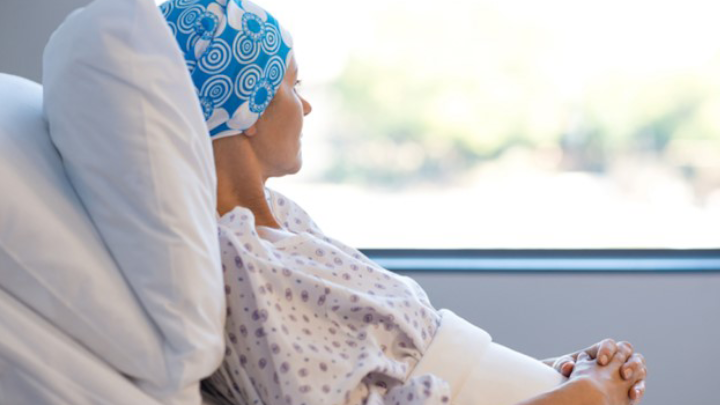Cancer and Cannabis Use: Why a patient’s perception matters
A study led by SDSU researcher Corinne McDaniels-Davidson highlights the need for better communication surrounding cannabis use as an option to treat side-effects of cancer treatment.

San Diego State University researcher Corinne McDaniels-Davidson’s new publication in the Journal of the National Cancer Institute explores the decision-making process, perceived benefits, and risks of cannabis use to address symptoms in adults with cancer.
“There’s a vacuum in the world of cancer care. Many oncologists don’t talk to their patients about cannabis or refer them to a pain management specialist instead,” said McDaniels-Davidson, associate director at the SDSU School of Public Health and the study's lead investigator.
It is important to note that cannabis is not a treatment for cancer itself. However, prior studies support that marijuana-derived cannabinoids, like TCH and CBD, can help relieve disease symptoms and ease the side effects of cancer therapies, including chemotherapy.
However, there is little research on how a patient’s beliefs about cannabis influence their perception of its effectiveness or their decision to take cannabinoids while undergoing cancer treatment.
“We need to know this basic information based on actual observation and evidence so that patients can make informed decisions and provide accurate information to their clinicians and care providers,” said McDaniels-Davidson.
Partnering with researchers at the University of California San Diego and VA Health Care for the one-year study, McDaniel-Davidson’s team conducted a comprehensive survey of nearly 1,000 adult cancer patients at various stages of cancer treatment at Moores Cancer Center in La Jolla.
“Our data shows about a third of the patients surveyed used cannabis after their diagnosis, but only a few of those patients said they had told their oncologist,” said McDaniels-Davidson.
“Survivors who perceived that cannabis had any benefits were five times more likely to use it. Those who perceived there were any risks were nearly 60% less likely to have used it post-diagnosis,” she said.
Cancer survivors diagnosed with stage 3 or 4 were also more likely to use cannabis, according to the study. “Among those who used cannabis, 19% said they believed the misconception that it could treat or cure cancer. That’s a dangerous falsehood that needs to be corrected,” she said
“The take-home message is we need accurate information about the benefits and risks of cannabis use during cancer treatment to improve communication between patients and providers to optimize care,” said McDaniels-Davidson.



